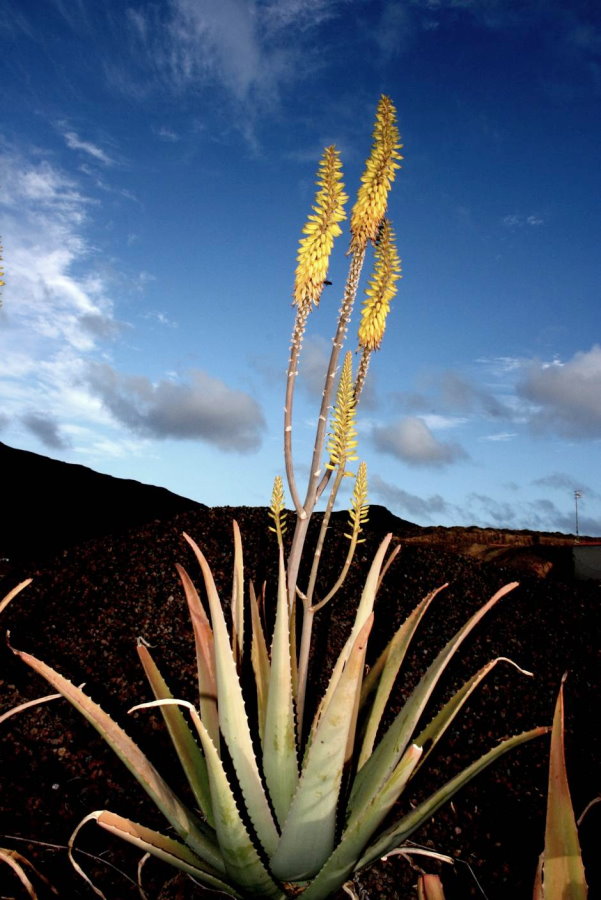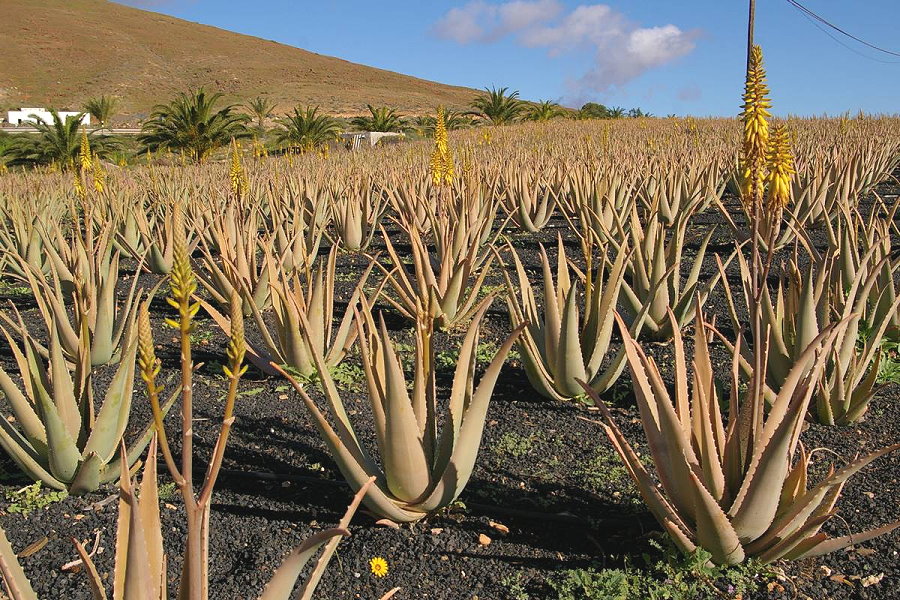The Aloe Vera plant
What is the Aloe Vera?
 The Aloe Vera (Aloe Barbadensis Miller) is a lily plant, similar to onion, garlic and rhubarb. The pulp inside the leaves is very rich in many minerals, vitamins, amino acids, proteins, etc. The combination of these active ingredients, it is both, very helpful in the regeneration of damaged tissue, and effectively in natural cosmetics.The combination of these active ingredients, it is both, very helpful in the regeneration of damaged tissue, and effectively in natural cosmetics.
The Aloe Vera (Aloe Barbadensis Miller) is a lily plant, similar to onion, garlic and rhubarb. The pulp inside the leaves is very rich in many minerals, vitamins, amino acids, proteins, etc. The combination of these active ingredients, it is both, very helpful in the regeneration of damaged tissue, and effectively in natural cosmetics.The combination of these active ingredients, it is both, very helpful in the regeneration of damaged tissue, and effectively in natural cosmetics.To preserve fully the properties of Aloe Vera is necessary to press the pulp in cold. Adding alcohol, perfumes and dyes such properties are lost.
The best climatic conditions for optimum growth of Aloe Vera can be found on Fuerteventura; high temperatures, low rainfall and plenty of light.
 To ensure the purity of the final product, the organic cultivation of the plant is an important factor. Crucially, however, that the production is carried out on ecological foundations. In recent years, more and more organically grown plantations of Aloe Vera developed. From this point of view, until now exists only one processing factory in Fuerteventura. This is in Tiscamanita, Tuineje.
To ensure the purity of the final product, the organic cultivation of the plant is an important factor. Crucially, however, that the production is carried out on ecological foundations. In recent years, more and more organically grown plantations of Aloe Vera developed. From this point of view, until now exists only one processing factory in Fuerteventura. This is in Tiscamanita, Tuineje.
Contents of the Aloe Vera
The Aloe Vera concentrates a large amount of vitamins- Vitamin A (Retinol)
- Vitamin B 1 (Thiamin)
- Vitamin B 2 (Riboflavin)
- Vitamin B 3 (Niacin)
- Vitamin B 5 (Pantothenic acid)
- Vitamin B 6 (Pyridoxin)
- Vitamin B 9 (Folic acid)
- Vitamin B 12 (Cobalamin)
- Vitamin C (ascorbic acid)
All of them beneficial for all the functions of the human body and health in general.
Others components of Aloe Vera are:
- Aloemodina: regulates the functioning of the intestinal mucosa.
- Aloeoleína: improving stomach and duodenal ulcers. It reduces the acidity.
- ALOETINA: neutralizes the effect of microbial toxins.
- Amino Acids in the formation of proteins.
- Carricina: strengthens the immune system and help the defense.
- Creatinine is essential in the reactions of storage and transmission of energy.
- Emolina, emodin, barbaloin: salicylic acid-generating analgesic and anti-fever.
- phosphate mannose: agent tissue growth, healing effect.
- Minerals: calcium, magnesium, phosphorus, potassium, zinc, copper.
- Mucilage: emollient activity on the skin.
- Saponins: antiseptic.
- Phytosterols: anti-inflammatory action.
- Mucopolysaccharides: responsible for cellular hydration.
- Plant hormones: they stimulate cell growth and healing.
- Enzymes involved in stimulating the body's defenses
The Aloe Vera contributes to our agency with a large number of properties beneficial for our health.
1 to 8 (from a total of 8)
